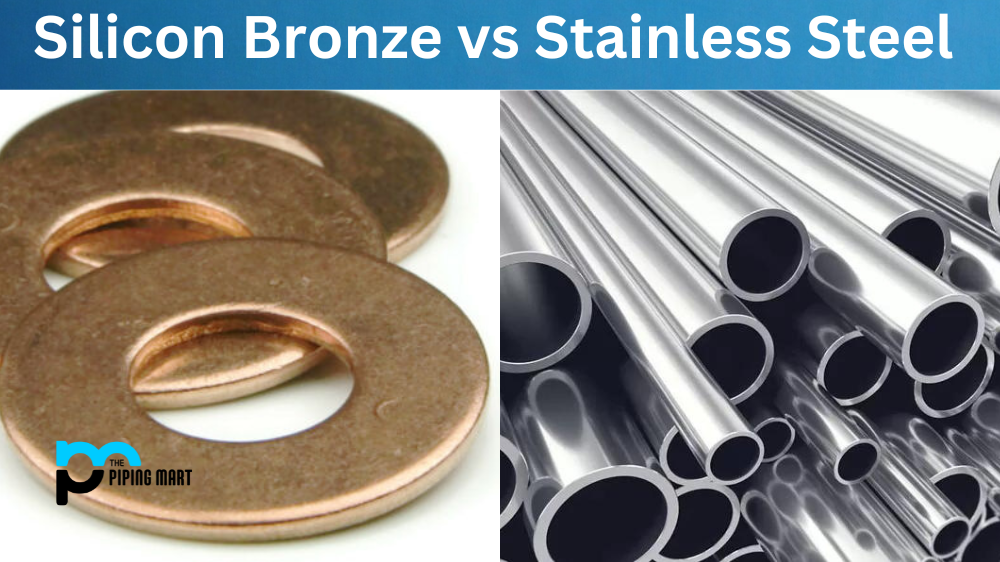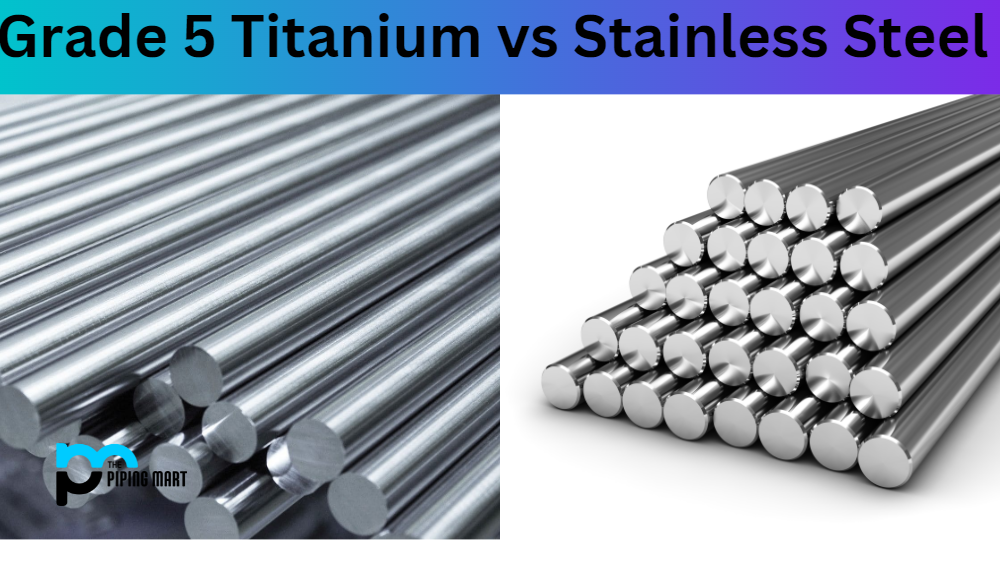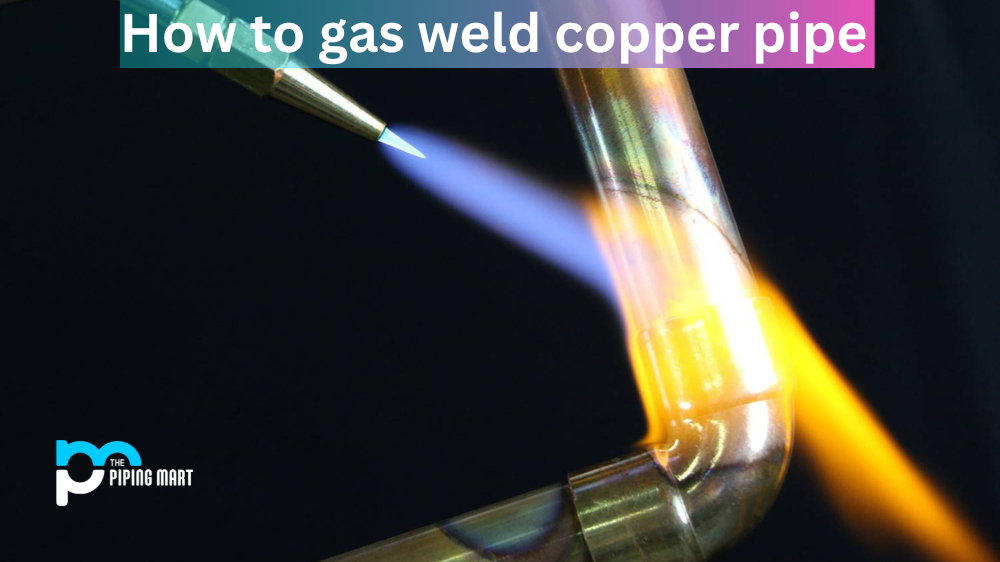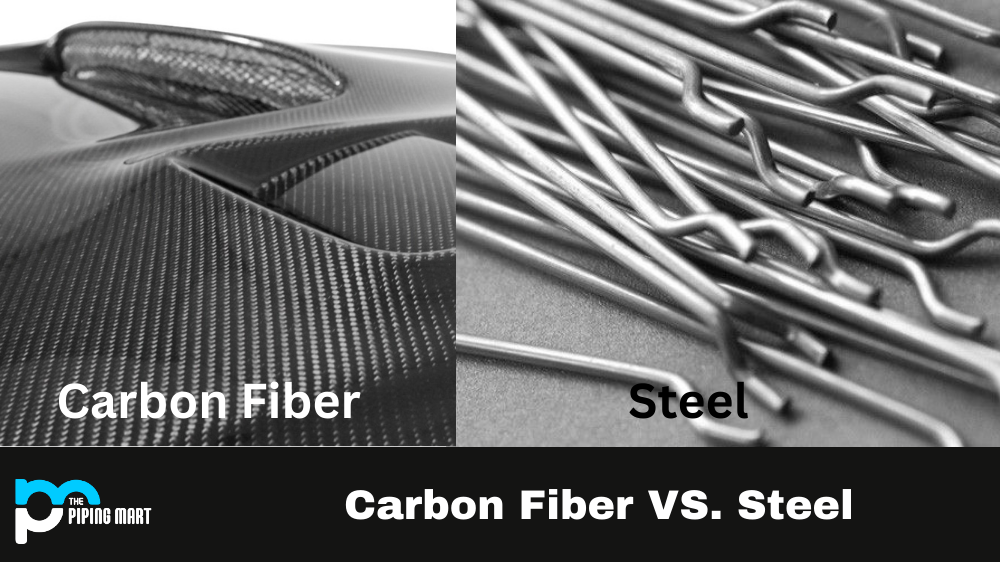When it comes to home improvement projects, there’s nothing more important than choosing the right materials. You want to make sure that whatever you use will last through extreme conditions, and it’s important to know the differences between the various materials available. Two popular choices for residential and commercial applications are silicon bronze and stainless steel. Let’s take a look at how these two materials compare.
Silicon Bronze vs. Stainless Steel Differences
The primary difference between silicon bronze and stainless steel lies in their respective compositions. Silicon bronze is an alloy made up of copper and other metals, including tin, zinc, iron, aluminum, silicon, and manganese. This combination makes it strong yet malleable, with excellent corrosion resistance in both saltwater and freshwater environments. It also has great electrical conductivity properties. Stainless steel, on the other hand, is composed mainly of iron with small amounts of chromium and nickel added in to provide corrosion resistance. While stainless steel has some corrosion resistance, it doesn’t hold up as well as silicon bronze when exposed to a marine environment or if it is constantly wet or damp.
When it comes to hardness, stainless steel is much harder than silicon bronze—it measures between 180-200 on the Rockwell scale, while silicon bronze clocks in at around 70-90. This makes silicone bronze much easier to shape into complex shapes using standard tools such as drills and saws but also limits its use for applications that require more strength, such as heavy machinery parts or automotive components. On the other hand, stainless steel is extremely hard, which makes it resistant to damage from impacts but also makes it difficult to work without specialized tools like milling machines or lathes.
Composition
Silicon bronze is an alloy of copper, silicon, and zinc, while stainless steel is an alloy of iron, chromium, and carbon.
Properties
Silicon bronze is known for its high strength and corrosion resistance, while stainless steel is known for its durability and low maintenance.
Uses
Silicon bronze is often used in marine applications due to its resistance to saltwater corrosion, while stainless steel is often used in food preparation due to its resistance to staining and rusting.
Cost
Silicon bronze is typically more expensive than stainless steel due to its higher copper content.
Appearance
Silicon bronze has a golden coloration due to its copper content, while stainless steel has a silver coloration.
Weldability
Silicon bronze is more difficult to weld than stainless steel due to its higher melting point.
Applications of Silicon Bronze vs Stainless Steel
Silicon bronze is best suited for applications where its good corrosion resistance properties are needed such as marine applications including boats, shipbuilding, pipe fittings; electrical components; plumbing fixtures; fasteners like nuts & bolts; architectural construction; gears & bearings; sculptures & art installations; valves & pumps; lamps & lighting fixtures, etc. Stainless steel, on the other hand, can be used in many different types of applications, such as kitchen appliances (stoves & refrigerators); medical equipment (surgical instruments); automotive parts (exhaust systems); food processing equipment (cooking utensils); restaurant supplies (tableware); hardware tools (screwdrivers & hammers), etc. due to its superior hardness compared to silicone bronze.
Conclusion:
So when deciding which material is right for your project, consider your use case carefully – do you need something that can withstand exposure to saltwater? Then go with silicone bronze! Or do you need something that won’t corrode easily regardless of exposure? If so, then stainless steel may be your best bet! With a better understanding of each material’s unique characteristics, you can make an informed decision about which one will work best for your needs! In any case, be sure to consult with professionals before making a final decision on which material is best suited for your application! Good luck!

Meet Bhavesh, a seasoned blogger with a wealth of knowledge and experience. From metal products manufacturing to retail, Bhavesh has a diverse background in various industries and is dedicated to sharing his insights and expertise with readers.




